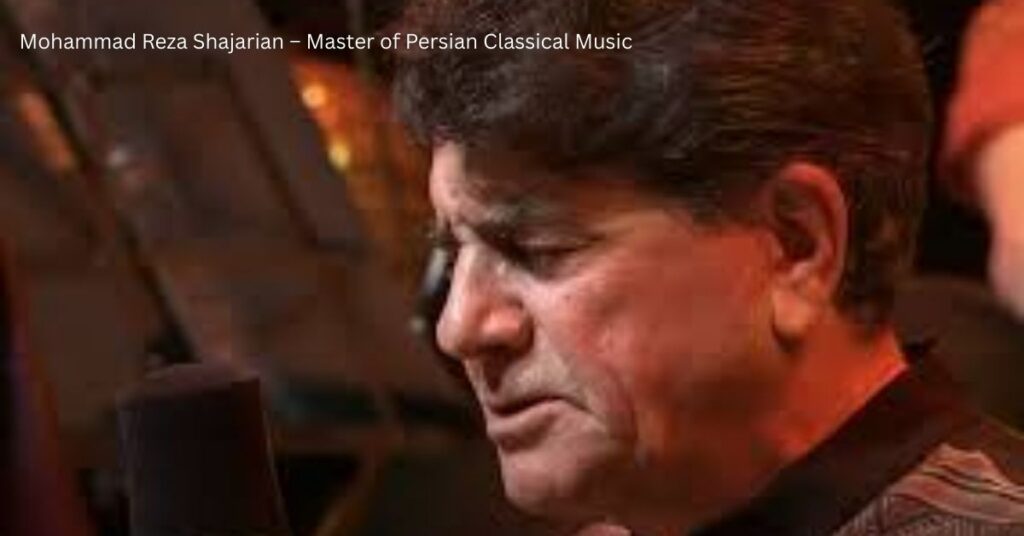Mohammad Reza Shajarian is widely regarded as one of the greatest masters of Persian classical music. Known for his exceptional voice, deep understanding of Persian poetry, and dedication to preserving traditional music, Shajarian became a cultural icon not only in Iran but also across the globe. His artistry, combined with his unwavering commitment to heritage and freedom of expression, has left a timeless legacy.
Early Life and Musical Beginnings
Born on September 23, 1940, in Mashhad, Iran, Mohammad Reza Shajarian was introduced to music at an early age. His father, who was also a singer of Quranic recitations, influenced his vocal training. Shajarian began reciting the Quran as a child and soon developed a remarkable ability to use his voice with precision and emotion. This foundation played a crucial role in shaping his mastery of Persian classical singing.
By his teenage years, Shajarian had started to study under renowned music teachers, refining his knowledge of radif—the traditional repertoire of Persian classical music. His early performances demonstrated his exceptional talent, earning him recognition among scholars and musicians.
Rise to Fame
Shajarian’s breakthrough came in the 1960s when he began recording and performing on Iranian radio and television. His powerful yet soulful voice captivated listeners, and he quickly became a household name. Collaborating with some of Iran’s greatest composers and instrumentalists, Shajarian elevated Persian classical music to new heights.
His interpretations of poetry from legendary poets like Hafez, Rumi, and Saadi resonated deeply with audiences. The way he blended lyrical meaning with vocal artistry made him not just a singer but a cultural storyteller.
Contributions to Persian Classical Music
Shajarian’s significance goes beyond his mesmerizing performances. He actively worked to preserve and revitalize traditional Persian music. Some of his notable contributions include:
- Radif Preservation: Shajarian was a leading figure in teaching and transmitting the radif system to new generations of musicians.
- Innovation in Instruments: He collaborated with instrument makers to create new traditional instruments, expanding the possibilities of Persian music.
- Mentorship: As a teacher, he trained numerous students, many of whom became celebrated musicians in their own right.
Global Recognition
Shajarian’s voice reached far beyond Iran. He performed in prestigious venues worldwide, including Carnegie Hall in New York and the Royal Albert Hall in London. His music introduced global audiences to the richness of Persian culture and classical traditions.
Over his career, Shajarian received several international honors, including the UNESCO Picasso Medal and UNESCO Mozart Medal, acknowledging his role as a global ambassador of music.
Political Stance and Influence
Beyond music, Shajarian was admired for his courage and integrity. During times of political unrest in Iran, he used his voice as a symbol of resistance. Songs like “Morgh-e Sahar” (Bird of Dawn) became anthems for hope, freedom, and resilience. His ability to connect music with social and political realities made him a beloved figure among Iranians worldwide.
Legacy and Passing
Mohammad Reza Shajarian passed away on October 8, 2020, in Tehran, after a long battle with illness. His death was mourned by millions who regarded him as the “voice of Iran.” Even today, his recordings, performances, and teachings continue to inspire musicians, scholars, and admirers of Persian classical music.
Conclusion
Mohammad Reza Shajarian was not only a master of Persian classical music but also a guardian of cultural identity and a symbol of resilience. His extraordinary voice, combined with his dedication to poetry, tradition, and freedom, secured his place as one of the greatest artists in Iranian history. For lovers of music and culture, Shajarian’s legacy remains an eternal source of inspiration.




